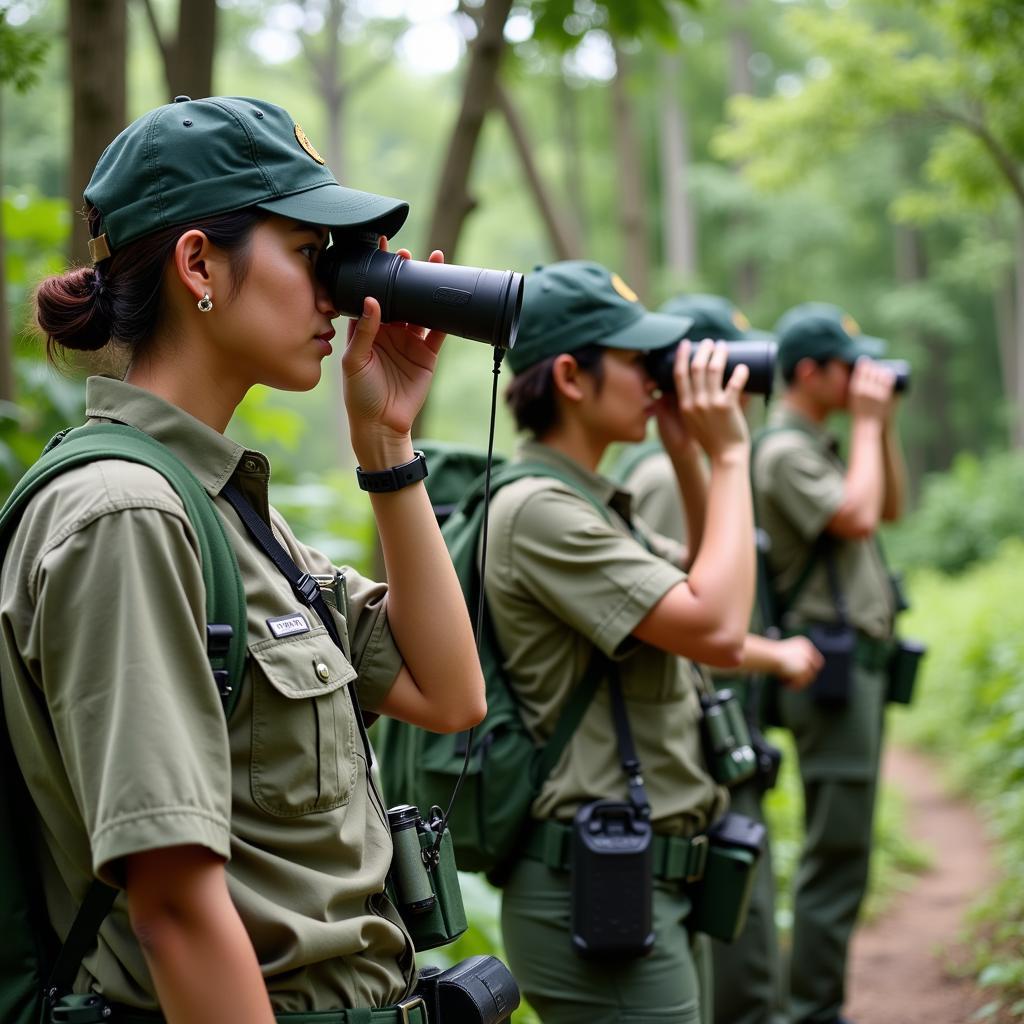Southeast Asia is a biodiversity hotspot, home to a staggering array of animal species. However, this rich natural heritage is facing unprecedented threats, from habitat loss and climate change to poaching and the illegal wildlife trade. “Asea For Animals” represents a growing movement to protect and conserve this invaluable fauna, ensuring its survival for generations to come.
The Challenges Facing Southeast Asian Wildlife
Southeast Asia’s diverse ecosystems, from lush rainforests to vibrant coral reefs, are facing a barrage of challenges. Deforestation, driven by agricultural expansion and logging, is stripping away vital habitats. Climate change is altering weather patterns, leading to droughts, floods, and rising sea levels, all of which threaten animal populations.
 Wildlife trafficking in Southeast Asia
Wildlife trafficking in Southeast Asia
The illegal wildlife trade, fueled by demand for exotic pets, traditional medicines, and luxury goods, is another major threat. Southeast Asia serves as both a source and a transit hub for this illicit market, pushing many species towards the brink of extinction.
Collaborative Conservation Efforts
Recognizing the urgency of the situation, governments, NGOs, and local communities across Southeast Asia are working together to protect their natural heritage. Transboundary conservation initiatives are crucial, given that many species migrate across national borders.
 Protected area rangers on patrol
Protected area rangers on patrol
Protected areas, such as national parks and wildlife sanctuaries, play a vital role in safeguarding critical habitats. However, effective management and enforcement are crucial to their success.
Empowering Local Communities
Engaging local communities is essential for long-term conservation success. Many communities depend on natural resources for their livelihoods, and sustainable practices are key. Ecotourism, for instance, can provide alternative income sources while promoting conservation awareness.
 Community-based wildlife conservation
Community-based wildlife conservation
Educational programs can empower communities with the knowledge and skills to protect their natural heritage. By fostering a sense of ownership and pride in local biodiversity, these programs can inspire lasting change.
A Future for Southeast Asian Wildlife
The challenges facing Southeast Asian wildlife are significant, but there is hope. By strengthening partnerships, supporting community-led conservation, and addressing the root causes of biodiversity loss, it is possible to secure a brighter future for these remarkable animals. The “ASEA for animals” movement represents a collective commitment to ensuring that Southeast Asia’s natural heritage continues to thrive for generations to come.
FAQs
What are the biggest threats to animals in Southeast Asia?
Habitat loss, climate change, the illegal wildlife trade, and human-wildlife conflict are among the most pressing threats.
What is being done to protect animals in Southeast Asia?
Efforts include establishing protected areas, combating wildlife trafficking, promoting sustainable livelihoods, and raising awareness about conservation.
How can I support animal conservation in Southeast Asia?
You can support reputable organizations, make responsible tourism choices, and advocate for stronger wildlife protection policies.
Are there any success stories in Southeast Asian animal conservation?
Yes, there have been successful efforts to recover endangered species like the orangutan and the Javan rhinoceros, demonstrating that conservation can work.
What is the role of technology in protecting animals in Southeast Asia?
Technology plays a vital role in monitoring wildlife populations, tracking illegal activities, and raising awareness about conservation efforts.
What are some of the key organizations working to protect animals in Southeast Asia?
WWF, Wildlife Conservation Society (WCS), and TRAFFIC are among the organizations actively involved in conservation efforts.
How can I learn more about specific animal species in Southeast Asia?
You can find valuable information from organizations like the IUCN Red List, which provides conservation status assessments for various species.
Need further assistance? Contact us at Phone Number: 0369020373, Email: [email protected], or visit our office at ASE Pest & Weed Supplies. Our dedicated customer support team is available 24/7 to assist you. For information regarding animal feed, you can explore our ASE Feed Store.
